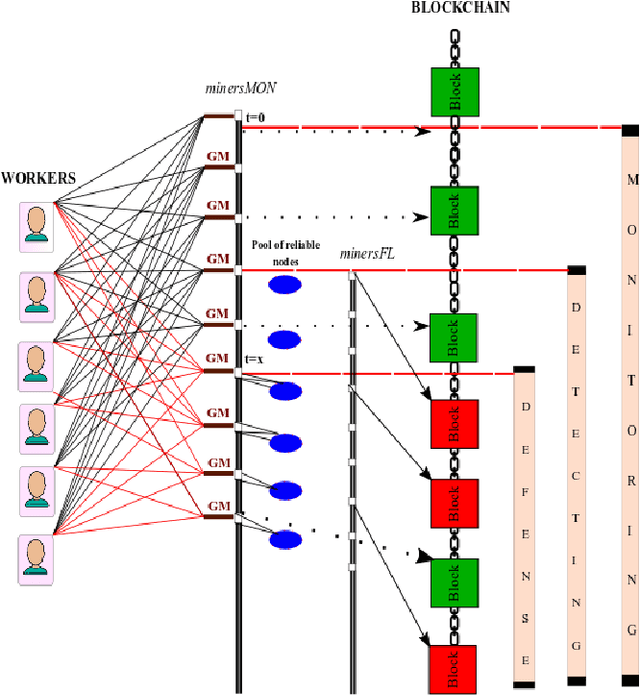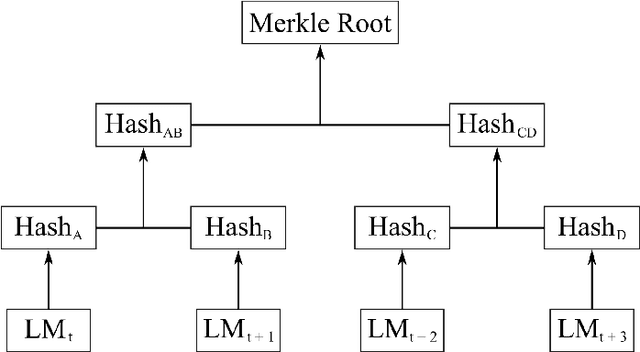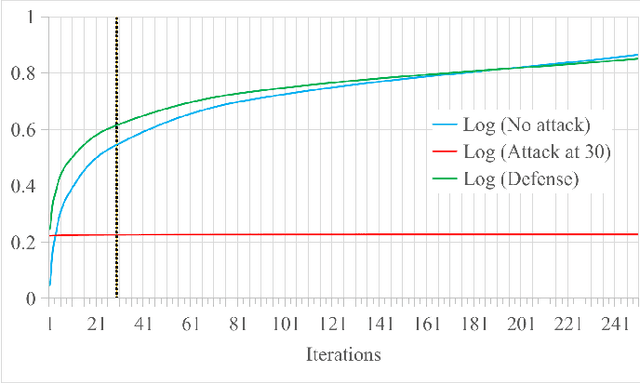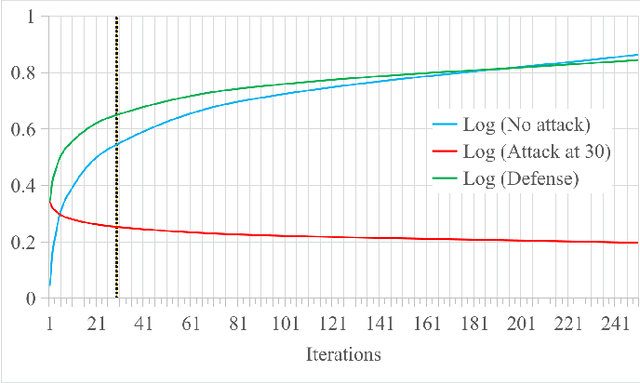Blockchain-based Monitoring for Poison Attack Detection in Decentralized Federated Learning
Paper and Code
Sep 30, 2022



Federated Learning (FL) is a machine learning technique that addresses the privacy challenges in terms of access rights of local datasets by enabling the training of a model across nodes holding their data samples locally. To achieve decentralized federated learning, blockchain-based FL was proposed as a distributed FL architecture. In decentralized FL, the chief is eliminated from the learning process as workers collaborate between each other to train the global model. Decentralized FL applications need to account for the additional delay incurred by blockchain-based FL deployments. Particularly in this setting, to detect targeted/untargeted poisoning attacks, we investigate the end-to-end learning completion latency of a realistic decentralized FL process protected against poisoning attacks. We propose a technique which consists in decoupling the monitoring phase from the detection phase in defenses against poisoning attacks in a decentralized federated learning deployment that aim at monitoring the behavior of the workers. We demonstrate that our proposed blockchain-based monitoring improved network scalability, robustness and time efficiency. The parallelization of operations results in minimized latency over the end-to-end communication, computation, and consensus delays incurred during the FL and blockchain operations.
 Add to Chrome
Add to Chrome Add to Firefox
Add to Firefox Add to Edge
Add to Edge